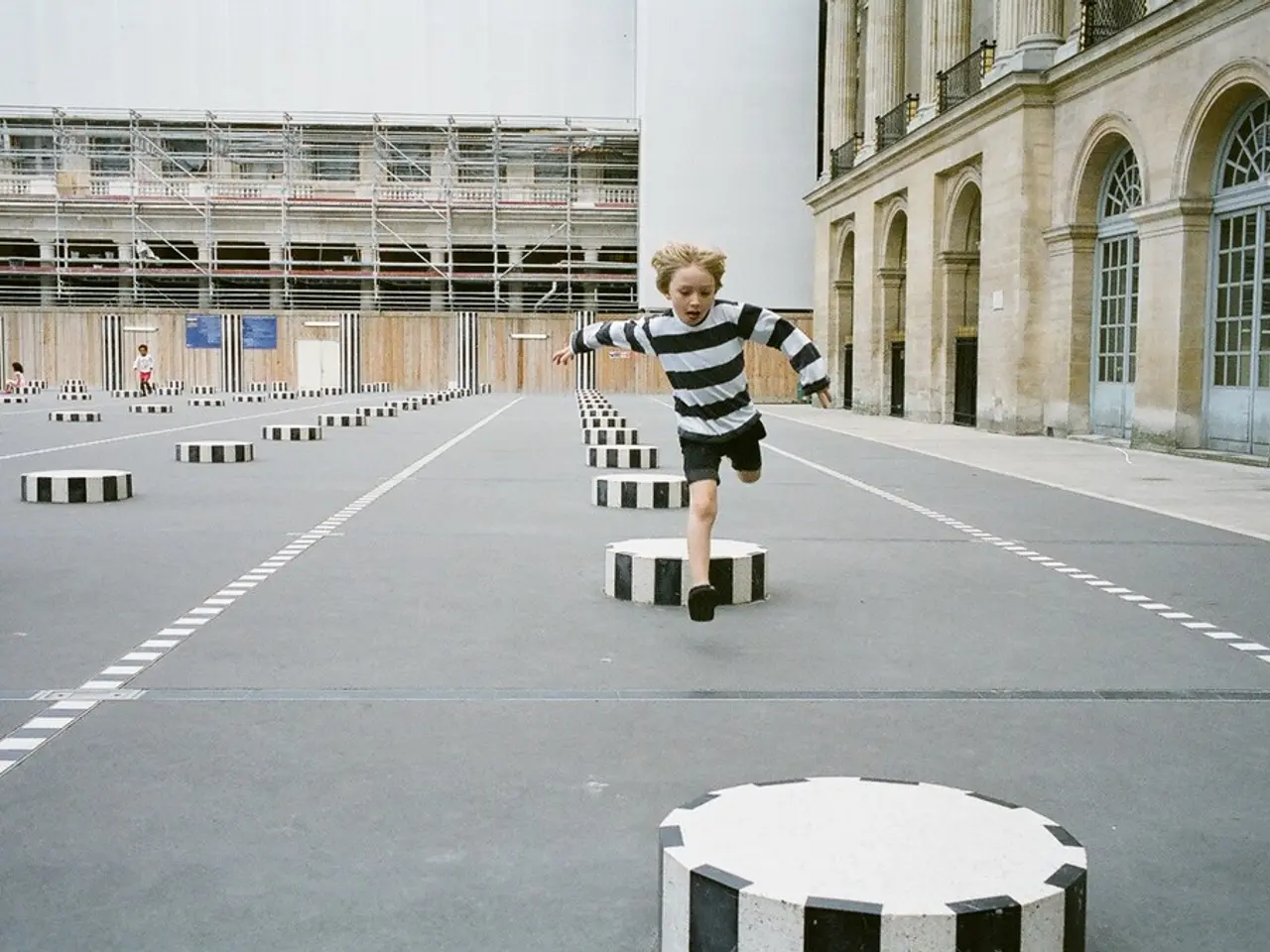Investigating Interactive Learning Methods at Children's Museum Lecce
In the realm of education, play serves as a primary context for learning in play-based learning, a child-initiated, process-oriented, open-ended, joyful, and engaging approach that fosters comprehensive development across cognitive, social, emotional, and physical domains.
At Museo dei Bambini, play is the curriculum, and exhibits are designed to engage the whole child, promoting meaningful learning. One such exhibit, the Captain's Wheel, encourages pretend play, helping children understand roles, practice language, and develop empathy. Another, the Funny Faces exhibit, allows children to create their own expressions, aiding them in exploring facial cues, emotions, and symmetry.
Play stimulates brain growth and enhances problem-solving, creativity, and critical thinking. Through activities like pretend and dramatic play, children take initiative, set goals, and develop persistence and innovation skills essential for lifelong learning. A 2020 study in Nature Human Behaviour found that play improves cognitive flexibility and learning adaptability.
Play also allows children to express, manage, and process strong emotions safely, promoting emotional regulation, resilience, and empathy. Acting out various scenarios helps children understand and navigate their feelings more effectively.
Group play teaches communication, cooperation, sharing, turn-taking, rule-following, and conflict resolution, building social competence and healthy relationships. The Pull & Lift exhibit introduces children to mechanics, force, and tension through physical activities, promoting sneaky science and resilience.
Active play such as running, climbing, and dancing supports gross motor development, while play with small objects enhances fine motor skills and hand-eye coordination. The Domino Drop teaches children about force, balance, and chain reactions through play, which can be considered early engineering.
Contrary to misconceptions, play-based learning enhances early literacy and numeracy through joyful exploration, discovery, and playful repetition, leading to better engagement and outcomes even in formal education settings.
Play nurtures independent learning, risk-taking, and a sense of agency, encouraging children to become self-motivated and confident problem solvers. Frameworks like the Early Years Learning Framework (EYLF) underscore play as a key practice that supports holistic and meaningful learning experiences by intertwining physical, cognitive, social, and emotional development in developmentally appropriate ways.
The benefits of play-based learning are well documented and include improved literacy, numeracy, and emotional well-being. In 2018, the American Academy of Pediatrics recommended "prescription for play" due to its benefits for brain development and stress reduction.
Adults can support play-based learning at home by giving children time, space, and permission to follow their ideas. Parents have commented on the impact of playful exhibits on their children's imagination, storytelling, and family life. Albert Einstein stated that "Play is the highest form of research."
In summary, play-based learning is a foundational approach that equips children with the skills, creativity, emotional intelligence, and social abilities needed for success in school and life, supported by robust evidence from child development research and education theory.
At the Museo dei Bambini, exhibits like the Captain's Wheel and the Funny Faces are designed to promote education-and-self-development through play, encouraging learning in various aspects such as role understanding, language practice, and emotional exploration. Moreover, engaging in play at the museum helps children develop cognitive skills like problem-solving, creativity, and critical thinking, which are essential for lifelong learning.




